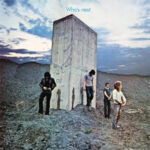Bob Marley’s “One Love” stands as more than just a song; it’s a global message of unity, peace, and spiritual devotion that has resonated across generations. This iconic track, arguably the most enduring hit from the reggae legend, boasts a fascinating history marked by multiple releases and evolving interpretations.
The journey of “One Love” began in 1965 when The Wailers, still honing their distinctive sound, first recorded it as an энергичный ska tune. This initial version, featured on their debut LP, The Wailing Wailers, and later in the Songs of Freedom box set, carried a subtly Rastafarian-infused message of togetherness. Marley himself reflected on this early rendition, acknowledging their raw, untrained vocal style as they explored harmonies. Despite its initial form, the song became a staple in their live performances, hinting at its lasting potential.
Over a decade later, “One Love” was reborn during the Exodus sessions in 1977. Producer Chris Blackwell encouraged Marley to revisit his older material, and with a matured artistic vision, Marley reimagined the song. He slowed the tempo, amplified the drumbeat, and significantly, incorporated elements of The Impressions’ 1965 hit, “People Get Ready,” even adding it to the title as “One Love/People Get Ready.” Blackwell’s suggestion to credit Curtis Mayfield, granting him half of the publishing rights, was a strategic move to preempt any potential copyright issues given the melodic similarities. This 1977 version cemented the song’s place in reggae history.
While released as a single in the 1970s, “One Love” achieved even greater heights posthumously. Following Marley’s passing, it was rereleased in 1984 alongside the massively successful greatest hits album, Legend. This release was accompanied by a music video featuring cameos from music icons like Paul McCartney and Bananarama, further amplifying its reach. The single soared to Number Five on the British charts that year, demonstrating its enduring appeal.
The song’s universal message continued to find new avenues of expression. In 1994, the Jamaica Tourist Board adopted “One Love” as their official theme song, leveraging its positive and unifying spirit to promote the nation. Then, in 1999, the BBC selected “One Love” as its anthem for Millennium Eve, commissioning yet another rendition. This special recording featured Marley’s son, Ziggy Marley, collaborating with the Gipsy Kings and the Boys’ Choir of Harlem, underscoring the song’s timeless and cross-cultural significance as a powerful Bob Marley song.

